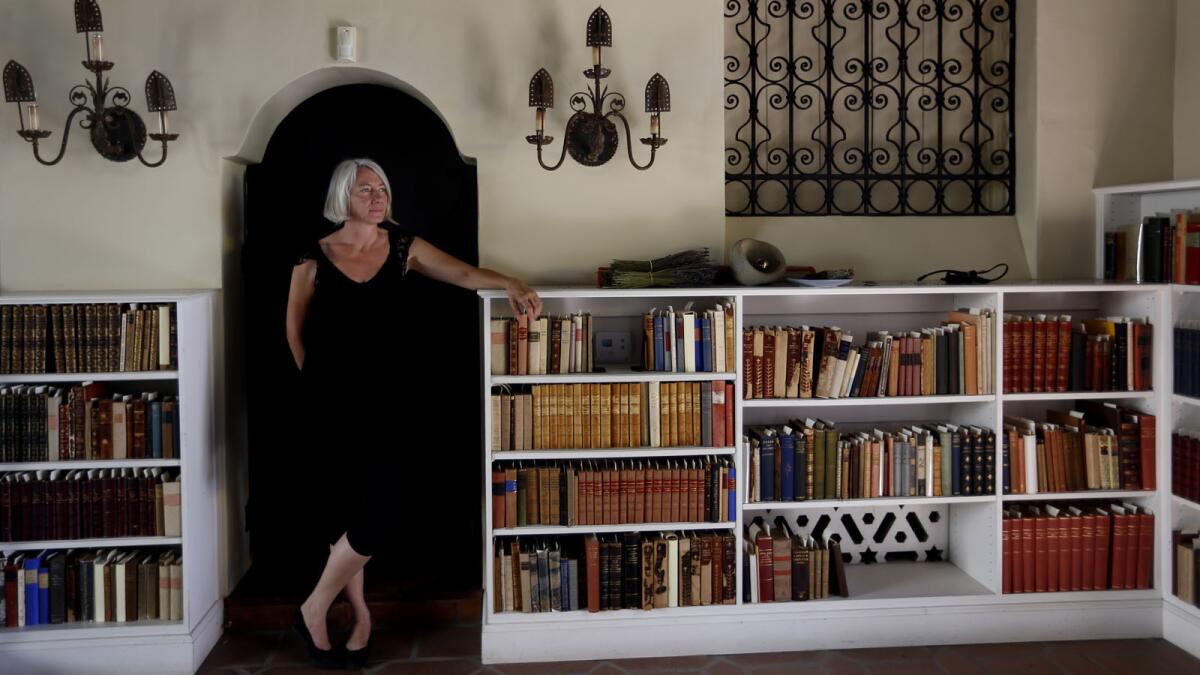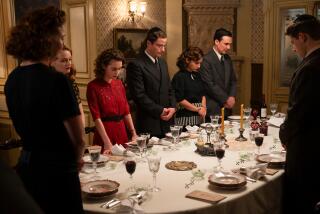‘An Apartment in Berlin’ examines trend of Jews’ moving to German city

A young Jewish man slipped on a Nazi uniform — swastika, brimmed hat, jackboots — and walked the streets of Berlin, drawing rebuke and curiosity in a city where the discomfiting echo of the past mingles with the vibrancy and bohemian flair of one of Europe’s most tolerant capitals.
The man, Yoav Sapir, a tour guide, is one of three Israelis in “An Apartment in Berlin,” a documentary about the wanderlust, ironies and reinventions of Jews living in a country where decades ago their ancestors were corralled into train cars and shipped to concentration camps. Berlin is a touchstone to that horror but it is also a city, the film notes, where “history is disappearing behind new plaster and paint.”
Directed by German filmmaker Alice Agneskirchner, the documentary examines the trend of Jews’ moving to Berlin since the fall of communism in the 1990s. At least 50,000 Jews, about 20,000 of them Israeli expatriates, live in the city. Fascination with their adoptive home parallels a disquieting anti-Semitism across the continent, much of it instigated by right-wing and Islamist groups. Targeted killings this year of Jews in Paris and Copenhagen prompted Israeli Prime Minister Benjamin Netanyahu to urge European Jews to immigrate to Israel.
“What brought them here to my city, Berlin, to the country that had caused so much death and suffering for their people?” Agneskirchner, who narrates the film, which was screened last month by the Los Angeles Jewish Film Festival and is expected to air on Netflix next year, says of the three Israelis she profiles.
The answers speak to Berlin’s appeal and the estrangement that many young Israelis feel toward their native land. Sapir, for instance, has an intense, at times unnerving, obsession with German history and folklore; when he was a child he called his toy soldiers Nazis. The daughter of ultra-orthodox Jews, Yael Mendel escaped an arranged marriage and sought a place free of religious and traditional constraints. Eyal Roth, a former soldier, studies biology at Humboldt University and is dismayed by Israel’s treatment of the Palestinians and what he describes as its money culture.
------------
FOR THE RECORD
March 18, 7:10 p.m.: In an earlier version of this article, Humboldt University, which is in Berlin, had been changed to Humboldt State.
------------
“In a sense they came to the forbidden place,” Agneskirchner said in an interview. “Israelis learn at a very young age about the Holocaust. It is part of who they are. But the younger generation is saying, ‘We can’t base our lives on this fact. We have to move forward.’ By coming to Berlin, they overcome history.”
Many Israelis, like European and American expats, chose Berlin for its low cost of living and dynamic arts scene and night life. A number of Israelis also came to avoid mandatory military service back home. The Berlin they discovered was both coy and promiscuous, a testament at once to romanticism and humanity’s crueler designs, but a city that has made transparency and tolerance its central ethos.
“After the wall came down, Berlin was an up-and-coming, open-minded city,” said Agneskirchner, an artist in residence at Villa Aurora in Pacific Palisades, once a refuge to German artists fleeing Adolf Hitler’s regime. “Israelis really took to it. They started clubs, a radio station and a lot of galleries, much more so than the Danes or the Spanish.”
The idea for “An Apartment in Berlin” arose after Agneskirchner read through “declaration of assets” cards the Nazis required of Jews. They listed bank accounts, insurance policies, businesses, furniture, books, art and jewelry. One of the cards was filled out by Rosa and Simon Adler, egg merchants who lived in an apartment in Berlin’s Prenzlauer Berg district. The couple was deported to Auschwitz in 1944 and never returned.
“It was very disturbing to read those cards,” said Agneskirchner. “I knew the streets listed — houses came to mind.” She asked the new tenants of the Adlers’ flat if they would temporarily move out. “I wanted to reconstruct how the apartment was back then. I had to feel how life was there.”
The lives of Sapir, Mendel and Roth, whom the director found through an Israeli expat website, intersect at the flat. They accompany Agneskirchner to flea markets to furnish the apartment with antiques, including a candelabrum, brass fixtures, tables, pictures, a top hat and a scroll of a song written in Hebrew. The flat becomes a place out of time where the Israelis share a Sabbath dinner, ponder the past but do not seek mea culpas from a city where the sprawling Memorial to the Murdered Jews of Europe sits between the Brandenburg Gate and Hitler’s wartime bunker.
“We don’t want apologies,” says Roth, who notes that many Israelis have built a “defensive layer” concerning the extermination of Jews; otherwise, “you will be crying all the time and that’s not really useful.”
“Personal tragedy,” says Sapir, reflecting on the Adlers’ fate in the broader Holocaust, “gets lost in this massive quantity.”
In one scene, Sapir puts on a Nazi uniform and sits in the apartment, smoking a cigarette as if a calculating Gestapo agent. Except for artistic purposes, it is a crime in Germany to brandish the swastika, and Agneskirchner tells him she can’t understand why he would dress in such a way. Sapir looks at her.
“You didn’t grow up with the dishonor of victimhood,” he says. “The tragedy of history, or of contemporary history, is that the Germans would prefer to be victims in order to somehow be freed of their consciences.” He pauses, glances away and looks back, adding that if given the choice “some Jews” would prefer to be the perpetrators.
Agneskirchner, 48, was raised in Bavaria with parents who never discussed World War II. Her country, now home to more than 100,000 Jews, over time struggled with denial, remorse and acceptance. Like many Germans of her generation, her awareness of the death camps was cursory until 1979, when the U.S.-produced “Holocaust” miniseries aired on German television.
In making “An Apartment in Berlin,” which has appeared on German and Israeli television, Agneskirchner said, “I started the film with this feeling of guilt. As a German documentary filmmaker, at some point you hit this subject.... Today, I still feel the guilt, but I don’t feel accused anymore.”
Her Berlin is full of reminders of those who were lost, including the Adlers, whose names, like thousands of others, are etched in brass squares that have been hammered into sidewalks.
Twitter: @JeffreyLAT
More to Read
Only good movies
Get the Indie Focus newsletter, Mark Olsen's weekly guide to the world of cinema.
You may occasionally receive promotional content from the Los Angeles Times.







